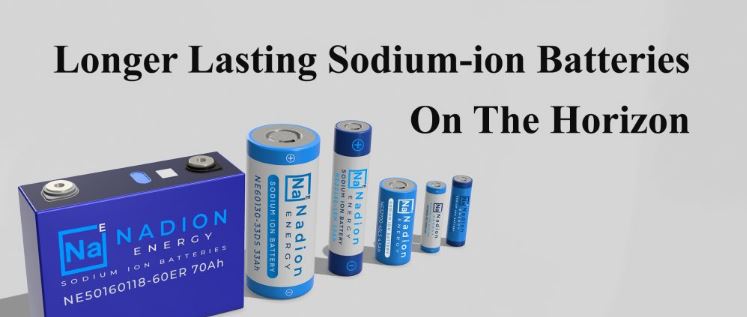
A SIB battery refers to a sodium-ion battery, an emerging type of rechargeable battery that uses sodium ions (Na⁺) as charge carriers instead of the lithium ions (Li⁺) found in lithium-ion batteries. SIBs are gaining attention due to the abundance and low cost of sodium compared to lithium, making them a promising alternative for specific applications.
Key Features of SIB Batteries
- Chemical Composition:
- Anode: Typically hard carbon or other sodium-compatible materials.
- Cathode: Layered oxides, polyanionic compounds, or Prussian blue analogs (PBAs).
- Electrolyte: Sodium salt dissolved in an organic solvent or aqueous solutions for some applications.
- Voltage and Energy Density:
- Nominal voltage: ~2.3V–3.0V (slightly lower than lithium-ion batteries).
- Energy density: Lower than lithium-ion batteries, typically 90–150 Wh/kg.
- Advantages:
- Cost-Effectiveness: Sodium is abundant and widely available, reducing material costs.
- Resource Sustainability: No reliance on scarce or geopolitically sensitive resources like lithium or cobalt.
- Good Thermal Stability: Comparable safety to LFP batteries, with low risk of thermal runaway.
- Environmental Friendliness: More recyclable materials compared to lithium-ion batteries.
- Limitations:
- Lower Energy Density: Heavier and bulkier compared to lithium-ion alternatives.
- Cycle Life: Generally shorter compared to lithium-ion chemistries, though improving with advancements.
- Commercial Maturity: Still in development stages, with fewer products on the market.
Applications of SIB Batteries
- Grid-Scale Energy Storage:
- Ideal for renewable energy integration due to cost-effectiveness and resource availability.
- Low-Cost Energy Storage:
- Suitable for applications where weight and compactness are less critical, such as home energy storage or backup power systems.
- Electric Vehicles (EVs):
- A potential option for low-cost EVs in the future, though current SIBs are less competitive due to lower energy density.
- Industrial Applications:
- Ideal for equipment and systems in industries where cost and sustainability are prioritized.
Comparison with Other Battery Types
| Feature | SIB (Sodium-Ion) | LFP (Lithium Iron Phosphate) | NMC/NCA (Nickel-based) |
|---|---|---|---|
| Energy Density | Moderate (~90-150 Wh/kg) | Moderate (~100-160 Wh/kg) | High (~150-300 Wh/kg) |
| Cycle Life | Improving (~2,000 cycles) | Long (2,000-4,000 cycles) | Moderate (1,000-2,500 cycles) |
| Cost | Low | Moderate | High |
| Abundance of Raw Materials | Very High (sodium) | Moderate | Limited |
| Safety | Good | Excellent | Moderate |
Advantages Over Lithium-Ion Batteries
- Raw Material Abundance:
- Sodium is the sixth most abundant element on Earth, while lithium resources are geographically concentrated and limited.
- Lower Cost:
- Materials like sodium and hard carbon are cheaper than lithium and cobalt, making SIBs potentially more economical for large-scale applications.
- Temperature Tolerance:
- Performs well at low and high temperatures, making them suitable for diverse climates.
Challenges
- Energy Density:
- Lower than lithium-ion batteries, making them less ideal for portable devices or high-performance EVs.
- Cycle Life:
- While improving, SIBs still lag behind lithium-ion in terms of durability.
- Commercial Adoption:
- Currently in the early stages of commercialization, with limited large-scale manufacturing.
Future Trends
- Advancements in Materials:
- Research focuses on improving anode and cathode materials to enhance energy density and cycle life.
- Scaling Production:
- Companies like CATL and Faradion are investing in scaling up SIB production for commercial applications.
- Focus on Stationary Storage:
- SIBs are expected to gain a foothold in stationary energy storage markets, particularly for grid applications.
- Hybrid Systems:
- Combining SIBs with other battery types for hybrid energy systems to optimize performance and cost.
Why Consider SIB Batteries?
SIBs are most suitable for applications where cost, sustainability, and safety are more important than energy density. As the technology matures, SIBs could become a key player in the global energy storage landscape.
Let me know if you’d like specific details about commercial products, manufacturers, or technical specs!
